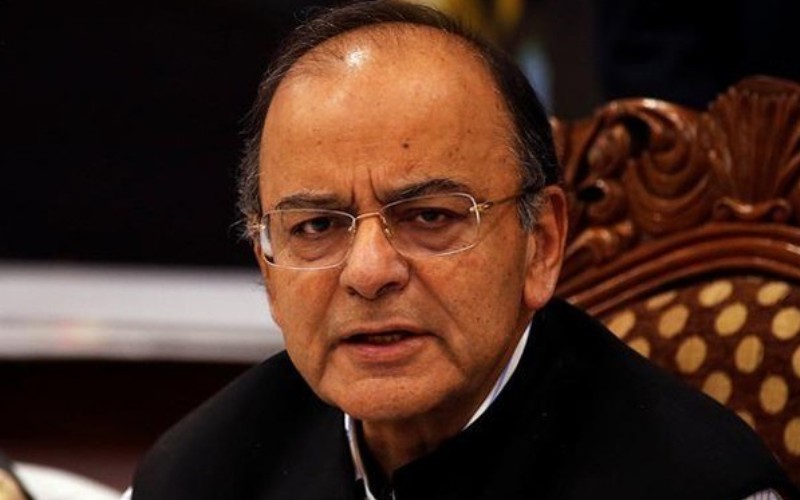New Delhi: Union Finance Minister Arun Jaitley on Thursday said that Prime Minister Narendra Modi led NDA government at the Centre had given a tremendous boost to financial inclusion. “Just 4-5 years ago we were living in a system where 48 per cent of our population, that is, nearly 600 million people had never seen a bank in their life and were not connected to the banking system. Today, they have bank accounts,” he said while addressing the World Congress of Saving and Retail Bank (WCSRB).
Jaitley said: “The first task was to bring them into the banking system. So, 330 million accounts were opened in a matter of a few months. It was a massive exercise. It was mainly the public sector banks who reached out to every village through their banking correspondents.” “Financial inclusion has seen an unparalleled headway during the NDA government. Millions of poor people are now a part of the banking system,” he added.
He said that the whole exercise of financial inclusion started with the zero balance account as 78 per cent of people had no money in their accounts. “To incentivize them, we said you can get small overdraft in your account. We offer them life insurance on payment of a token amount of one rupee a month, that is, equivalent to 0.13 US dollar,” said Jaitley.
“141 million people have insured themselves for accidental benefits, while another 55 million on payment of a slightly higher amount associated have opted themselves for life insurance,” he added. He also highlighted and praised MUDRA loans and other financial schemes of the government for small and medium entrepreneurs.
“India took an experiment which is unique, where every Indian has a biometric identity. Each Indian has got a unique identification number linked with his bank account,” said Jaitley, stating that now the financial benefits of all welfare schemes are directly credited into the poor people’s bank accounts under the ‘Direct Benefit Transfer’ scheme.
Talking about the demonetization, the Finance Minister said that the move led to formalizing the economy by bringing money back into the banking system. “To formalize the economy, we have to take some very difficult steps. We went for demonetizing our high-value currency, which compelled the people to deposit their cash into the banking system,” said Jaitley.
“We have brought in a new taxation regime-Goods and Services Tax (GST)-where we have combined multiple taxes into one. Our tax laws have become completely online.
Talking about electrification, Jaitley said: “By December 31, 2018, not a single house would be left in an Indian village which does not have an electricity connection,” said Jaitley. “Four years ago rural India had rural sanitation coverage of only 39 per cent. In four years, this 39 per cent has gone up to 92 per cent,” he said.
“50 million families were still depending on conventional methods of cooking by the use of wood or coal, which was detrimental to the ladies’ health, more particularly in rural areas. So we incentivize them and gave them initial connections at the state’s cost. We targeted at 50 million and revised it to 80 million and have already covered 60 million,” said Jaitley.
“We want to use growth as a mechanism to pull the maximum number of people out of poverty, improve upon their quality of life, but we are conscious of the fact that the dangers of development and progress benefiting a few and leaving many others out of the inclusion system are also there. Therefore, the penetration effect of growth will certainly take place but would be a slow process. Aspirational societies are not willing to wait for indefinitely,” he said.
[source_without_link]ANI[/source_without_link]

